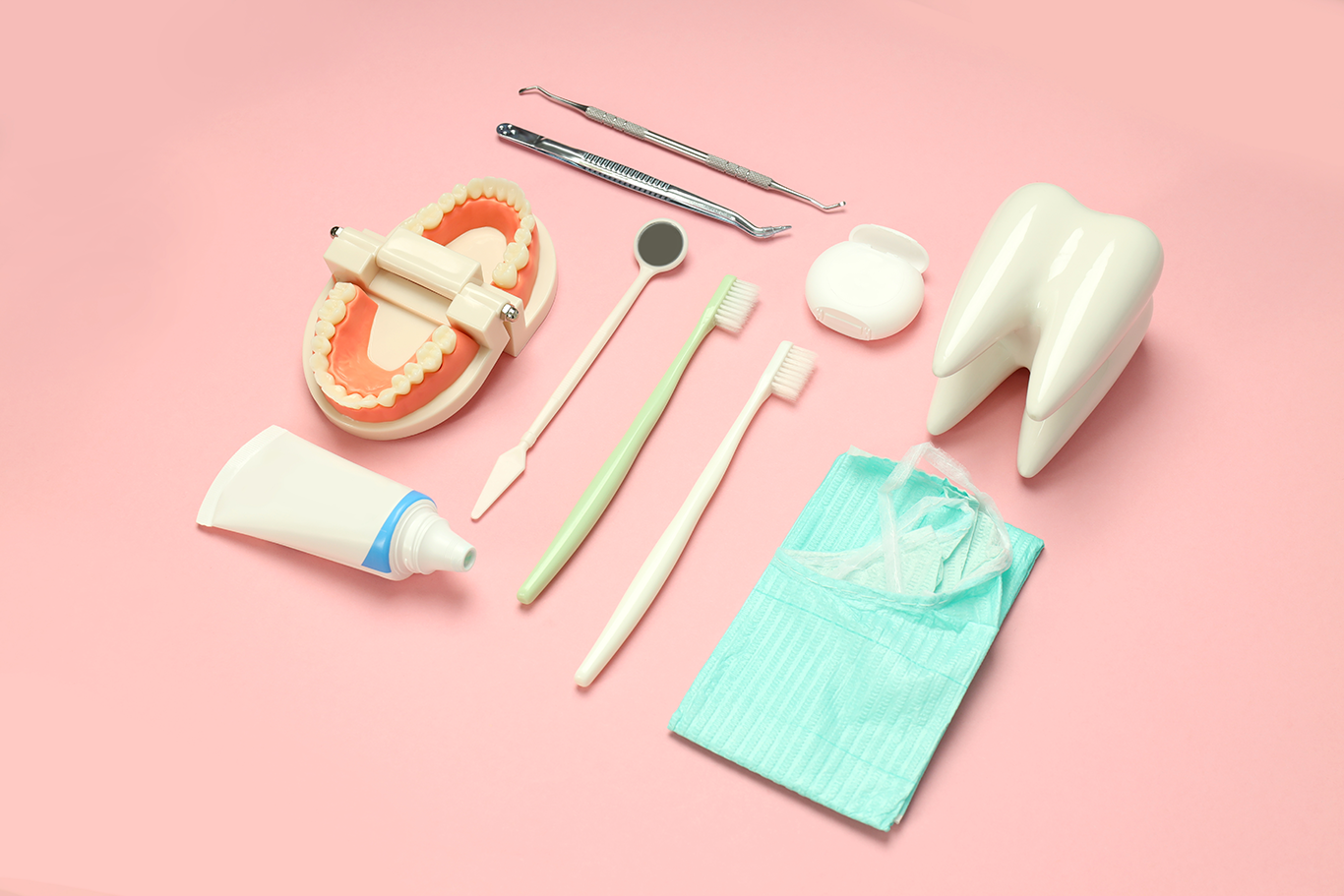Colorado’s craft beer scene has long been a source of pride and economic strength for the state. Known as the “State of Craft Beer,” Colorado boasts a rich tradition of brewing innovation and a vibrant community of brewpubs and taprooms. However, recent shifts in the industry have brought new challenges and opportunities for business owners. Understanding the right insurance coverage is essential for protecting these establishments amid an evolving market landscape.
This guide explores the unique risks faced by Colorado brewpubs and taprooms, the types of insurance coverage that best address those risks, and the broader economic context shaping the industry today. Whether you operate a small taproom or a large brewpub, this information will help you make informed decisions to safeguard your business.
For an overview of the current market dynamics, see the detailed report on
Colorado's largest craft brewers in 2023, by the numbers.
Understanding the Colorado Craft Beer Industry Landscape
Colorado’s craft beer industry remains a powerhouse in the state’s economy despite recent contraction. In 2024, the state saw a net decline of 3% in breweries, with 41 closures compared to only 20 new openings. This marks a significant shift from previous years of rapid growth and expansion.
These closures reflect broader market pressures including increased competition, changing consumer preferences, and economic factors. Industry leaders like Kevin Barnes, co-founder of Andiamo Brew, emphasize the need to “win consumers back to craft beer by elevating the style,” signaling a strategic pivot towards quality and innovation. Breweries are now focusing on unique flavor profiles, sustainable brewing practices, and local sourcing of ingredients to differentiate themselves in a crowded market.
Despite these challenges, the industry’s economic footprint remains substantial. The Colorado beer sector contributes over $13 billion annually to the state economy and generates $1.3 billion in taxes supporting local communities. It also supports approximately 61,000 jobs statewide, underscoring its importance beyond just the brewing companies themselves. Furthermore, the craft beer scene has become a vital part of Colorado's cultural identity, with numerous beer festivals and events celebrating local brews, attracting both tourists and locals alike.
As the industry adapts, many breweries are experimenting with innovative business models, such as taproom-only releases and collaborative brews, to engage their customer base and create a sense of community. The rise of craft beer tourism has also played a crucial role, with enthusiasts traveling to explore Colorado's diverse offerings, from small-batch brews to established favorites. This vibrant culture not only enhances the local economy but also fosters a strong sense of camaraderie among brewers and consumers alike.
For more on the economic impact, visit the Beer Serves America report.


Contact Us
Phone
Location
Key Risks Facing Brewpubs and Taprooms in Colorado
Operating a brewpub or taproom involves a unique set of risks that insurance must address. These risks can be broadly categorized into property, liability, operational, and regulatory challenges.
Property Risks
Physical assets such as brewing equipment, refrigeration units, furniture, and inventory are vulnerable to damage from fire, theft, water, and natural disasters. Given Colorado’s varied climate, risks like hailstorms and wildfires are also relevant concerns for property protection. Additionally, the location of a brewpub can amplify these risks; for instance, establishments situated in urban areas may face higher rates of vandalism or theft, while those in more remote locations might be more susceptible to natural disasters without immediate access to emergency services. Implementing robust security measures, such as surveillance systems and alarm systems, can help mitigate these property risks and protect valuable assets.
Liability Risks
Serving alcohol introduces significant liability exposure. Brewpubs and taprooms must manage the risk of alcohol-related incidents including over-service, intoxication, and accidents involving patrons. General liability coverage is critical to protect against claims of bodily injury or property damage occurring on the premises. Furthermore, the presence of live music or events can increase the likelihood of incidents, necessitating additional liability coverage. Staff training programs focused on responsible alcohol service can also play a crucial role in reducing liability risks by equipping employees with the skills to recognize and manage intoxicated patrons effectively.
Operational Risks
Day-to-day operations can be disrupted by equipment breakdowns, supply chain interruptions, or staff shortages. Business interruption insurance helps mitigate financial losses during these periods. Additionally, cyber liability is emerging as a concern due to increased use of digital point-of-sale systems and customer data management. As technology evolves, brewpubs must also be aware of potential data breaches that could compromise customer information. Regular audits of cybersecurity measures and employee training on data protection protocols can help safeguard against these operational risks, ensuring that both the business and its patrons remain secure.
Regulatory and Compliance Risks
Colorado’s alcohol licensing laws and health regulations require strict adherence. Non-compliance can result in fines, license suspension, or closure. Insurance policies may offer coverage for legal defense costs related to regulatory actions. Moreover, the ever-changing landscape of local and state regulations can pose a challenge for brewpubs and taprooms. Staying informed about legislative changes, such as new health mandates or alcohol distribution laws, is essential for maintaining compliance. Engaging with industry associations and legal experts can provide valuable insights and resources to navigate these complexities effectively, ensuring that businesses remain compliant while minimizing the risk of penalties.
Essential Insurance Coverages for Colorado Brewpubs and Taprooms
Given the diverse risks, a comprehensive insurance program tailored to the craft beer industry is vital. Below are the key coverages every brewpub and taproom should consider.
General Liability Insurance
This coverage protects against third-party claims for bodily injury or property damage. It is especially important for incidents involving customers on-site. For establishments serving alcohol, it is critical to include liquor liability coverage, which covers claims related to alcohol service. Additionally, brewpubs should be aware that general liability insurance can also protect against claims stemming from advertising injuries, such as copyright infringement or slander, which can arise from promotional activities.
Property Insurance
Property insurance covers damage to buildings, equipment, and inventory caused by covered perils such as fire, theft, or weather events. Brewpubs should ensure their policy includes coverage for specialized equipment like brewing tanks and refrigeration units. Furthermore, it’s wise for brewpub owners to consider endorsements for business personal property, which can safeguard items like furniture, fixtures, and even the unique decor that contributes to the establishment's atmosphere, ensuring that the essence of the brewpub is preserved in the event of a loss.
Business Interruption Insurance
This coverage compensates for lost income and ongoing expenses if the business must temporarily close due to a covered event like fire or natural disaster. Given the high fixed costs in brewing operations, this protection is crucial for financial stability. Brewpubs should also evaluate the duration of coverage, as some policies may provide benefits for longer periods, allowing for a more extended recovery phase that can be critical in rebuilding after significant disruptions.
Workers’ Compensation Insurance
Colorado law requires employers to carry workers’ compensation to cover medical expenses and lost wages for employees injured on the job. Brewpubs and taprooms with staff should ensure compliance to avoid penalties and protect their workforce. Additionally, implementing safety training programs can help reduce workplace injuries, potentially lowering insurance premiums over time while fostering a culture of safety within the establishment.
Product Liability Insurance
Since brewpubs produce and sell consumable products, product liability insurance protects against claims arising from illness or injury caused by the beer or food served. This coverage is essential to manage risks related to contamination or labeling errors. Moreover, brewpubs should maintain stringent quality control measures and documentation practices, as these can not only enhance customer safety but also serve as critical evidence in the event of a claim, showcasing the establishment's commitment to quality and safety.
Commercial Auto Insurance
If the business uses vehicles for deliveries or supply runs, commercial auto insurance protects against accidents involving company vehicles. This coverage is often overlooked but important for brewpubs with distribution operations. Additionally, brewpubs should consider including coverage for hired and non-owned vehicles, which can protect against liabilities incurred when employees use their personal vehicles for business purposes, ensuring comprehensive protection across all transportation methods.
Cyber Liability Insurance
With increasing reliance on digital systems for sales and customer management, cyber liability insurance helps cover losses from data breaches, ransomware attacks, and other cyber incidents. This type of insurance is becoming increasingly relevant as brewpubs adopt online ordering systems and customer loyalty programs. Implementing robust cybersecurity measures, such as regular software updates and employee training on data protection, can further mitigate risks and demonstrate a proactive approach to safeguarding sensitive customer information.
Industry Trends Impacting Insurance Needs
The Colorado craft beer industry is evolving rapidly, and insurance strategies must adapt accordingly. One notable trend is the consolidation of breweries and brands. Companies like Wilding Brands are acquiring smaller breweries to strengthen market position and streamline operations.
This consolidation can change risk profiles by increasing asset values, expanding distribution networks, and introducing new regulatory complexities. Brewpubs and taprooms involved in mergers or partnerships should review their insurance policies to ensure adequate coverage.
Additionally, the industry’s contraction, with more closures than openings in 2024, highlights the importance of protecting investments during uncertain times. Business interruption and liability coverages become even more critical as operators navigate shifting consumer preferences and economic pressures.
As breweries adapt to these changes, they are also exploring innovative brewing techniques and unique flavor profiles to attract a broader customer base. This experimentation not only enhances the product offering but also introduces new risks, such as potential liability claims related to product safety or consumer reactions to novel ingredients. Breweries must ensure that their insurance policies cover these emerging risks, particularly as they venture into uncharted territory with their brewing processes.
Moreover, the rise of e-commerce and direct-to-consumer sales channels has transformed how breweries engage with their customers. With more breweries selling online, the need for cyber liability insurance has become paramount. Protecting sensitive customer data and ensuring compliance with e-commerce regulations are essential for breweries looking to thrive in this digital landscape. As the market continues to shift, staying informed about these evolving insurance needs will be crucial for operators aiming to safeguard their businesses.
For insight into these developments, see the article on Colorado craft beer entering a new era of consolidation.

Economic Contributions and Employment Considerations
Beyond individual businesses, the craft beer industry plays a vital role in Colorado’s economy. In 2020, beer distributors alone provided over 1,200 jobs, contributing $86 million in wages and $264 million in total economic impact. The broader industry supports tens of thousands of jobs, from brewing and distribution to hospitality and retail. This network of employment not only fuels local economies but also fosters community engagement, as many breweries host events, support local charities, and collaborate with nearby businesses, creating a vibrant ecosystem that benefits everyone involved.
These employment figures underscore the importance of workers’ compensation and employment practices liability insurance. Brewpubs and taprooms must protect their employees and comply with labor laws to maintain a healthy workplace and avoid costly disputes. Additionally, the craft beer sector is known for its commitment to employee satisfaction, often providing benefits such as flexible schedules, opportunities for advancement, and a creative work environment that encourages innovation and passion for the craft. This focus on employee well-being can lead to lower turnover rates and a more dedicated workforce, further enhancing the industry's stability and growth.
For a detailed look at the economic impact, visit the
Colorado Beer Industry Economic Impact report. The report provides insights into how the craft beer sector not only generates revenue but also contributes to the cultural fabric of Colorado, making it a beloved part of the state's identity. From the bustling streets of Denver to the scenic landscapes of Fort Collins, breweries are not just places to enjoy a pint; they are community hubs that bring people together, celebrate local traditions, and showcase the unique flavors of Colorado’s agricultural bounty.
Practical Tips for Brewpub and Taproom Owners
Securing the right insurance coverage is only part of the equation. Brewpub and taproom owners can take proactive steps to reduce risks and improve safety.
- Implement rigorous alcohol service training: Educate staff on responsible serving practices to minimize liability.
- Maintain equipment and facilities: Regular inspections and maintenance reduce the likelihood of property damage and accidents.
- Develop emergency response plans: Prepare for fires, natural disasters, and other emergencies with clear protocols.
- Stay current on regulations: Monitor changes in state and local laws affecting alcohol service, health codes, and labor standards.
- Engage with industry groups:
Organizations like the Colorado Brewers Guild provide resources and advocacy to support business success.
Frequently Asked Questions
Q: What type of insurance covers alcohol-related incidents at a taproom?
A: Liquor liability insurance covers claims related to injuries or damages caused by intoxicated patrons. It is usually included as part of general liability policies for establishments serving alcohol.
Q: Is workers’ compensation insurance mandatory for brewpub employees in Colorado?
A: Yes. Colorado law requires most employers to carry workers’ compensation insurance to cover workplace injuries and illnesses.
Q: How does business interruption insurance help brewpubs?
A: It provides financial support for lost income and ongoing expenses if the business must close temporarily due to a covered event like fire or storm damage.
Q: Should a brewpub owner be concerned about cyber insurance?
A: Yes. As digital payment systems and customer data handling increase, cyber liability insurance helps protect against data breaches and cyberattacks.
Q: How can consolidation in the craft beer industry affect insurance needs?
A: Mergers and acquisitions can increase asset values and complexity, requiring updated coverage to address new risks and regulatory requirements.
Q: What role does product liability insurance play for brewpubs?
A: It protects against claims arising from illness or injury caused by the beer or food served, covering risks like contamination or labeling errors.
Q: Are there special considerations for insuring brewing equipment?
A: Yes. Brewing equipment is often costly and specialized, so policies should specifically cover damage or breakdown of this equipment to avoid gaps in protection.
What to Remember When Choosing Coverage
Colorado brewpubs and taprooms operate in a dynamic and sometimes unpredictable environment. Selecting insurance policies that reflect the specific risks of brewing and serving craft beer is essential for long-term success. Business owners should work with knowledgeable insurance professionals who understand the industry’s nuances and can tailor coverage accordingly.
Regularly reviewing and updating insurance policies ensures protection keeps pace with business growth, market changes, and regulatory developments. Taking a proactive approach to risk management not only safeguards assets but also builds confidence among customers, employees, and partners.
For more detailed information on the current state of Colorado’s breweries, including the recent decline in numbers and industry challenges, see the report on
41 breweries that closed in 2024.
ABOUT THE AUTHOR:
JEFF MAGOON
I'm Jeff Magoon, Principal at Magoon Group Insurance Intelligence, helping Colorado businesses simplify risk, close coverage gaps, and get fast, strategic support for their insurance and growth needs.
Contact Us
Real Reviews from People We’ve Helped
Clients trust us because we make insurance simple, responsive, and effective. From complex business coverage to personal policies, Magoon Group delivers results with clarity and care.
Specialized Insurance
We understand the unique risks of different industries. Whether you’re managing people, property, or services, we deliver coverage that keeps you protected and compliant.
From general to specialty contractors, we provide coverage for job sites, tools, vehicles, and liability.
Protection for your inventory, property, and operations—whether you're selling, repairing, or leasing.
Coverage for malpractice, equipment, employees, and your professional reputation.

What You Should Know About Insurance
We get a lot of questions—and we’re happy to answer them. Here are a few we hear most often, with answers you can count on.
Helpful Insurance Tips & News
We post new articles that help you stay informed, avoid costly mistakes, and understand your coverage better.
Contact Us
Phone
Location







